Colleagues with an interest in the Heath, Wellbeing and Ageing research theme, may be keen to hear details of this conference which is taking place locally on 12st August. Registration is required this week!

Mind Your Head Conference
Date/Time
Date(s) – 12 Aug 2012 10:30 AM – 3:30 PM
Location
Kingston Maurward College
Discover how to increase your mental potential, improve your memory and enhance the well-being of your mind at this unique event.
You only have one mind and its well-being is intrinsically linked to the success of your future. By taking care of your mind now, you can maintain its vitality for longer. As a business owner, manager, student or individual, you need your brain to be working at its full potential to cope with the pressures and vast amounts of information of every day life.
£95 – Pay by PayPal or card
Businesses are built on brain power, so it is vitally important that you make the best use of this most important asset. If you increase the mental potential in your business by engaging your team emotionally and mentally, then you can gain a competitive edge.
This amazing conference is for anyone who wants to take a pro-active approach to maintaining and enhancing the phenomenal power of their own or their employees’ brains.
It brings four internationally renowned speakers to Dorset. They will deliver their expertise on how you can increase your mental potential and wellbeing. Tony Buzan will also dispel some of the myths about the ageing brain and encourage a more positive attitude to those working in their later years.
The conference will be chaired by Valerie Singleton
Speakers:
Tony Buzan: Older, Better and Still Working Brain
Creator of Mind Mapping and Founder/ President of The Brain Trust Charity
Dominic O’Brien: How to Unleash Your Memory
Eight times world memory champion
Wayne Bennett: The Benefits of Lifelong Learning
Director of Dillington House and Chair of ARCA
Leontxo Garcia: Chess, the Best Gym for the Mind
Spanish journalist, researcher, lecturer and Chess Master
TICKETS : Just £95 inclusive of conference, buffet lunch and entry to the Showcase.
Group discount for tickets are available on request. Ring 01305 261540
BOOK NOW TO AVOID DISAPPOINTMENT.
Fund Raising Event
Proceeds will be used to sustain the voluntary community project Mind Your Head Challenge, which is enabling older people to stay more mentally active. Dementia is estimated to increase by 93% in West Dorset by 2020. This is 23% higher than the UK average. Research suggests that the more brain cells are stimulated the impact of dementia can be reduced. For more detail, please visit www.mindyourheadchallenge.org.uk
As an attendee of the Conference, you will have access to the Mind Your Head Challenge Showcase, which is running alongside the conference and demonstrates a wide range of mind stimulating activities available in Dorset. This includes a special simultaneous Chess competition between Raymond Keene, OBE, Chess Grand Master and twenty local chess players.
If you can’t come to the conference, you could bring your family to the Showcase. Price is £3 per person on the day.
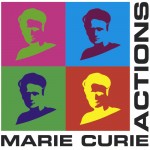 Registration is now open for the ‘Marie Curie Initial Training Networks (ITN) and Industry-Academia Partnerships and Pathways (IAPP) General Information and Proposal Writing’ events, organised by the Marie Curie National Contact Point. One is in Edinburgh on 17th September and the other in Warwick on September 27th.
Registration is now open for the ‘Marie Curie Initial Training Networks (ITN) and Industry-Academia Partnerships and Pathways (IAPP) General Information and Proposal Writing’ events, organised by the Marie Curie National Contact Point. One is in Edinburgh on 17th September and the other in Warwick on September 27th.

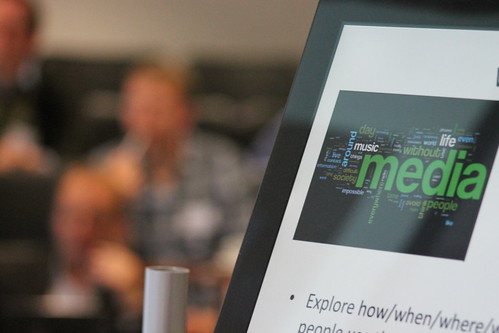
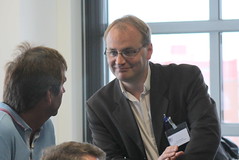


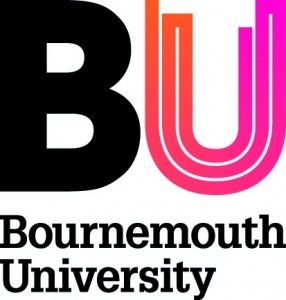
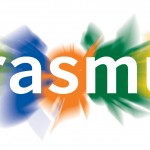
 HEFCE announced last week that in 2010-11 UK universities contributed £3.3 billion to the economy through services to business, including commercialisation of new knowledge, delivery of professional training, consultancy and services, a rise of 7% from 2009-10.
HEFCE announced last week that in 2010-11 UK universities contributed £3.3 billion to the economy through services to business, including commercialisation of new knowledge, delivery of professional training, consultancy and services, a rise of 7% from 2009-10.



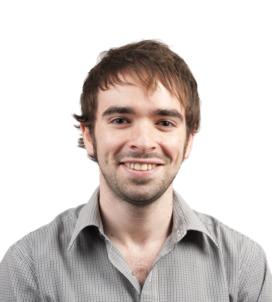
 The Large Awards Scheme makes awards of £10,000 to £100,000 for projects which are expected to have “significant regional or national impact”
The Large Awards Scheme makes awards of £10,000 to £100,000 for projects which are expected to have “significant regional or national impact”
 Congratulations to Steve Calver (School of Tourism) for securing funding from the NHS Dorset, Steve Calver and MRG (School of Tourism) for their funding from Bath Preservation Trust and the North Dorset Trailway Network, Joanna Hawkes (School of Tourism) for organising delegates for the courses Level 2 Fitness Instructor Short Course in September 2012 and Level 3 Fitness Training Short Course in October 2013, Steph Farmer (Media School) for successfully securing funding from South West Ambulance Trust Via Capita, Howard Davis and Melanie Klinkner (Business School) for their funding from Nuffield Foundation, Anthea Innes (Health and Social Care) for securing funding from Bournemouth Borough Council, Richard Gordon (School of Tourism) for securing funding from the Foreign and Commonwealth Office, John Fletcher (School of Tourism) for the funding he received from the University of Kent, Anthea Innes (Health and Social Care) for securing funding from Bournemouth Borough Council for her Community Dementia Programme, Mark Maltby (ApSci) for his funding from Central Bedfordshire Council, Mark Dover (ApSci) for his funding from Dataloft Ltd, Bronwen Russell and Jonny Monteith (Applied Sciences) for the funding they have received from Reefdene Limited, Forestry Commission and Joanna Scott, David Osselton (Applied Sciences) for the funding received from the South African Police Force.
Congratulations to Steve Calver (School of Tourism) for securing funding from the NHS Dorset, Steve Calver and MRG (School of Tourism) for their funding from Bath Preservation Trust and the North Dorset Trailway Network, Joanna Hawkes (School of Tourism) for organising delegates for the courses Level 2 Fitness Instructor Short Course in September 2012 and Level 3 Fitness Training Short Course in October 2013, Steph Farmer (Media School) for successfully securing funding from South West Ambulance Trust Via Capita, Howard Davis and Melanie Klinkner (Business School) for their funding from Nuffield Foundation, Anthea Innes (Health and Social Care) for securing funding from Bournemouth Borough Council, Richard Gordon (School of Tourism) for securing funding from the Foreign and Commonwealth Office, John Fletcher (School of Tourism) for the funding he received from the University of Kent, Anthea Innes (Health and Social Care) for securing funding from Bournemouth Borough Council for her Community Dementia Programme, Mark Maltby (ApSci) for his funding from Central Bedfordshire Council, Mark Dover (ApSci) for his funding from Dataloft Ltd, Bronwen Russell and Jonny Monteith (Applied Sciences) for the funding they have received from Reefdene Limited, Forestry Commission and Joanna Scott, David Osselton (Applied Sciences) for the funding received from the South African Police Force. Good luck to John Stewart (ApSci) for his NERC Grant application, Steve Calver (School of Tourism) in his application for funding from Perth and Kinross Council, Christopher Chapleo and Tim Ford (Business School) in their application for funding from the Institute for Small Business and Entrepreneurship (ISBE), Sara Crabtree (Health and Social Care) for her application to ISRF, Zulfiqar Khan (DEC) for his application to EPSRC, Dimitrios Buhalis, Adam Blake and Alan Fyall (School of Tourism) with their EC Tender, Mark Readman (Media School) for his application for funding from Barclays Bank, Eleanor Jack and Louise Worswick (Health and Social Care) for their application to the BUPA Foundation Seedcorn Grant, Gill Jordan (Health and Social Care) for her application to Pulse International, Clive Andrewes and Mary-Ann Robertson (Health and Social Care) for their application to Grapecroft Care Home, Bournemouth Arch (ApSci) for their application to Cerne Historical Society, Ian Swain, Caroline Ellis-Hill and Venky Dubey (DEC) for their application for funding from The Stroke Association, Colin Pritchard and Richard Williams (Health and Social Care) with their tender of the Children’s Commissioner for England, Tilak Ginige (Applied Sciences) for his funding application to HEA thematic workshop and seminar series, Dave Parham (Applied Sciences) for his funding application to Poole Harbour Commissoners, Tim Darvill, Bronwen Russell and Ehren Milner (Applied Sciences) with their funding application to English Heritage.
Good luck to John Stewart (ApSci) for his NERC Grant application, Steve Calver (School of Tourism) in his application for funding from Perth and Kinross Council, Christopher Chapleo and Tim Ford (Business School) in their application for funding from the Institute for Small Business and Entrepreneurship (ISBE), Sara Crabtree (Health and Social Care) for her application to ISRF, Zulfiqar Khan (DEC) for his application to EPSRC, Dimitrios Buhalis, Adam Blake and Alan Fyall (School of Tourism) with their EC Tender, Mark Readman (Media School) for his application for funding from Barclays Bank, Eleanor Jack and Louise Worswick (Health and Social Care) for their application to the BUPA Foundation Seedcorn Grant, Gill Jordan (Health and Social Care) for her application to Pulse International, Clive Andrewes and Mary-Ann Robertson (Health and Social Care) for their application to Grapecroft Care Home, Bournemouth Arch (ApSci) for their application to Cerne Historical Society, Ian Swain, Caroline Ellis-Hill and Venky Dubey (DEC) for their application for funding from The Stroke Association, Colin Pritchard and Richard Williams (Health and Social Care) with their tender of the Children’s Commissioner for England, Tilak Ginige (Applied Sciences) for his funding application to HEA thematic workshop and seminar series, Dave Parham (Applied Sciences) for his funding application to Poole Harbour Commissoners, Tim Darvill, Bronwen Russell and Ehren Milner (Applied Sciences) with their funding application to English Heritage.










 BU attendance at third annual GCPHR meeting in June
BU attendance at third annual GCPHR meeting in June Interactive Tangible and Intangible Heritage Applications – BU student work featured in new book chapter
Interactive Tangible and Intangible Heritage Applications – BU student work featured in new book chapter Second NIHR MIHERC meeting in Bournemouth this week
Second NIHR MIHERC meeting in Bournemouth this week MSCA Postdoctoral Fellowships 2025 Call
MSCA Postdoctoral Fellowships 2025 Call ERC Advanced Grant 2025 Webinar
ERC Advanced Grant 2025 Webinar Horizon Europe Work Programme 2025 Published
Horizon Europe Work Programme 2025 Published Horizon Europe 2025 Work Programme pre-Published
Horizon Europe 2025 Work Programme pre-Published Update on UKRO services
Update on UKRO services European research project exploring use of ‘virtual twins’ to better manage metabolic associated fatty liver disease
European research project exploring use of ‘virtual twins’ to better manage metabolic associated fatty liver disease